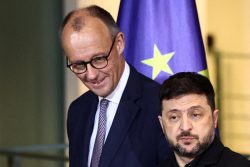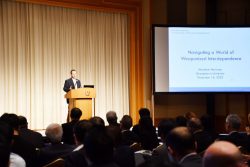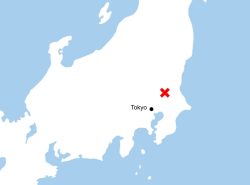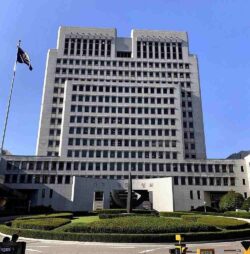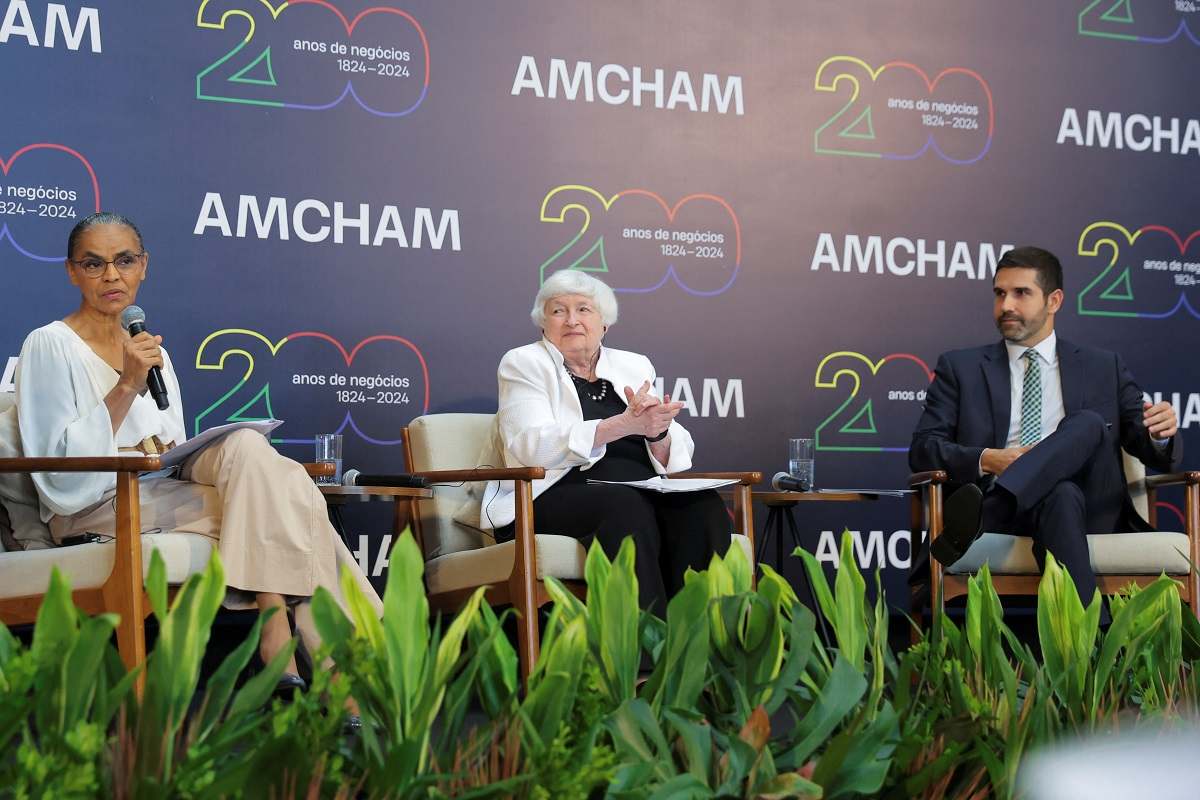
Brazil’s Minister of the Environment Marina Silva, U.S. Treasury Secretary Janet Yellen and Abrao Neto, CEO of American Chamber of Commerce for Brazil, take part in a meeting on the U.S.-Brazil economic relationship, in Sao Paulo, Brazil, February 27, 2024.
17:55 JST, February 28, 2024
SAO PAULO (Reuters) – Group of 20 finance leaders meeting in Brazil this week are expected to make only a passing reference in their closing statement to regional conflicts, according to a draft version seen by Reuters, due to deep divisions over wars in Gaza and Ukraine.
The draft communique, far shorter than previous years as host nation Brazil works to sidestep geopolitical controversies, also said the likelihood of a soft landing in the global economy has increased, but uncertainty remains high.
“Risks to the global economic outlook are more balanced,” with faster-than-expected disinflation and more growth-friendly fiscal consolidation underpinning growth, the draft said.
Kristalina Georgieva, head of the International Monetary Fund said the overall impact of wars was always negative, and the Israel-Gaza war was clearly adding to uncertainty for the global economy at a time of sluggish growth.
But she said it was still crucial for G20 finance officials to gather, noting that the recent agreement on digital services at the World Trade Organization showed cooperation still worked.
“Nobody wants any further deterioration in economic relations,” she told Reuters in an interview. “Talking with each other is the only way we can steer the world to a better performance.”
Last week’s gathering of foreign ministers in Rio de Janeiro exposed deep divisions over Russia’s invasion of Ukraine and Israel’s bombardment of Gaza. After that meeting, G20 finance officials are expected to set aside geopolitics and focus on global economic issues as they gather in Sao Paulo this week.
The draft communique being fine-tuned by deputy finance ministers reflects a delicate effort to acknowledge regional conflicts while maintaining consensus, which Brazil has emphasized during its presidency of the G20 major economies.
“Among the downside risks to the global economy are [wars and] escalating conflicts, geoeconomic fragmentation, rising protectionism and trade routes disruptions,” the draft communique said.
The reference to “wars” in brackets reflects efforts to reach a consensus on the final language, said a person familiar with the matter.
Brazil’s coordinator of the finance track at G20, Tatiana Rosito, said on Tuesday that the group is moving towards a short communique that reflects Brazilian priorities.
While wars in Ukraine and Gaza may get no direct mention in the joint communique and less emphasis in plenary sessions, they were boiling over on the sidelines.
U.S. Treasury Secretary Janet Yellen on Tuesday called on allies to move forward urgently to unlock the value of frozen Russian sovereign assets to help Ukraine, prompting an angry response from Russian officials.
Canada threw its support behind the U.S. idea with Finance Minister Chrystia Freeland saying on Tuesdaythe two countries agreed on the urgent need to move forward with confiscating frozen Russian sovereign assets to help Ukraine.
She and G7 peers are expected to discuss the matter during a separate meeting on Wednesday morning.
But Russian Finance Minister Anton Siluanov warned that Yellen’s proposal, if realized, would lead to a response that could escalate tensions.
“We believe this proposal to be deeply fallacious and also destructive because it undermines the very foundation and pillars of the world financial system,” he told reporters.
On the conflict in Gaza, Yellen said Israel has agreed to resume tax revenue transfers to the Palestinian Authority to fund basic services and bolster the West Bank economy. She called on Israel to allow commerce to resume there for the sake of its own economy and that of the Palestinians.
SMOOTH PROGRESS
Progress on Brazil’s proposed communique is advancing smoothly into the home stretch, a German government representative said on Tuesday.
“The whole thing is progressing very well,” the official told a press briefing in Germany, adding that the final document would highlight global economic resilience, while noting issues such as inequality between countries and excessive debt.
Brazil’s President Luiz Inacio Lula da Silva is pushing to give developing nations of the Global South more voice in G20 meetings during Brazil’s presidency, reflected in the draft communique’s focus on addressing hunger, poverty and inequality.
Finance officials and central bankers from the G20 are meeting at a time of lingering global economic uncertainties, increasing strains of record debt burdens, and worries that inflation may not yet be tamed.
In the draft communique, the G20 finance leaders gave an optimistic view on the outlook for price pressures. Inflation has receded in most economies, they said, thanks in part to “appropriate” monetary policies, easing supply chain bottlenecks and moderating commodity prices.
The draft also said the G20 group reaffirms their existing exchange-rate commitment, which warns against excess volatility and volatile currency moves as undesirable for economic growth.
"News Services" POPULAR ARTICLE
-

American Playwright Jeremy O. Harris Arrested in Japan on Alleged Drug Smuggling
-

Taiwan President Shows Support for Japan in China Dispute with Sushi Lunch
-

Japan’s Nikkei Stock Average as JGB Yields, Yen Rise on Rate-Hike Bets
-

Japan’s Nikkei Stock Average Licks Wounds after Selloff Sparked by BOJ Hike Bets (UPDATE 1)
-

Japanese Bond Yields Zoom, Stocks Slide as Rate Hike Looms
JN ACCESS RANKING
-

Japan’s Hopes for Seafood Exports Shot Down in China Spat
-

Keidanren Chairman Yoshinobu Tsutsui Visits Kashiwazaki-Kariwa Nuclear Power Plant; Inspects New Emergency Safety System
-
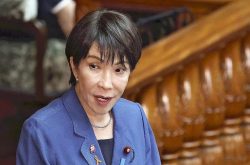
Japan to Charge Foreigners More for Residence Permits, Looking to Align with Western Countries
-

Japan Exports Rise in October as Slump in U.S. Sales Eases
-

Govt Aims to Expand NISA Program Lineup, Abolish Age Restriction


